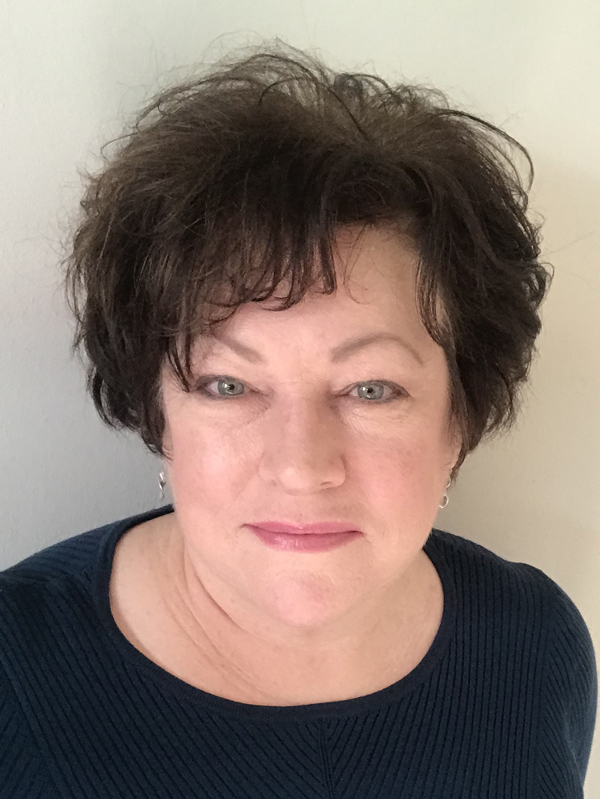The Curse of Dr Frank
Premenstrual tension was discovered in 1931 by Dr Robert Frank. Since then, it has been elevated to the status of syndrome-yet its causes and cures remain an enigma. Pat Thomas reports
It seems there are three things that are certain in this life: death, taxes and, if you’re a woman, premenstrual syndrome. With more than 150 symptoms to choose from, most women suffer some degree of PMS. Many admit to feeling helpless in its grip. Former model Mandy Smith was thin, pathetic and out of control of her life; when she went on breakfast TV a couple of years ago and admitted to having PMS, more than 11,500 sufferers wrote to the National Association for Premenstrual Syndrome for help. When the alleged infidelities of Melanie Griffith’s husband, Don Johnson, became public, she filed for divorce, only to withdraw the petition a day later, saying she had filed in the grip of uncontrollable PMS.
In spite of continual debate about the causes and cures of PMS, we are no closer to understanding it. So when PMS guru Dr Katrina Dalton comes up with a book called PMS — The Essential Guide To Treatment Options (published today by Thorsens, £7.99), you might think it would be cause for celebration- But the title is deceptive: Dalton is an unabashed proponent of progesterone therapy. So much so that almost all the “options” in the book are written off in a paragraph or two, while the miracle of progesterone is celebrated over a whole chapter.
So what are those who have experienced relief through everything from reflexology to royal jelly supposed to believe? That they were misdiagnosed? That it was all in their minds? In spite of Dalton’s own assertion that cause and cure are black and white, confusion reigns.
PMS won’t go away. Disturbingly, women themselves seem reluctant either to come to terms with or take responsibility for its existence. This could be because of the conflicting views on PMS that are thrown at them almost daily. It could also be that, deep down, women are not convinced that something so common should be treated as a disease.
The key, it seems, lies in research into the biochemical aspects of PMS. Since the discovery of PMT in 1931 by Dr Robert Frank, women have been fighting hard to prove that PMS is not all in the mind. The question is, have we gone too far? In trying to prove that sufferers are not deranged — and past treatments have included ECTs and even lobotomies — it is just possible we have begun to believe it’s not in the mind. Anybody who dares to suggest .that psychological, emotional, cultural or even environmental factors are just as important as physiological ones is thought to be insinuating madness.
At the Marie Stopes PMS Clinic in London, Dr Paul O’Brien agrees. “There is very little basic research done on PMS. Most of what does exist is funded by drug companies, so most of the treatments proposed are drug therapies. This encourages a sort of biological determinism where that may not be appropriate.”
Jane Ussher, a psychologist at University College London and advocate of the psycho-social aspects of PMS, believes there is room for a psychological component in its treatment. She acknowledges, however, that “many women are resistant to the idea because therapy is stigmatising and psychology has a tendency to pathologise women’s symptoms, just as medicine does.
“I would argue that PMS is not a valid syndrome anyway. But it is an umbrella under which many women with a lot of problems, women in terrible distress, can ask for help. As .well as psychological factors, social factors contribute to our perceptions of PMS. For instance, it is most common in women aged 30-35. This is most likely to be the time when a woman is coping with small children, probably also holding down a job and coming home to the exhausting prospect of cooking and cleaning. She will have very little time to see her friends, so her social support network will be thin. Women like these come to me and complain that it all gets on top of them once a month. My question is, how do they survive the rest of the month?
“The positive aspect, of PMS is that it allows women to go to their doctor and say: ‘I can’t cope.’ On the negative side, it can be a way for women to deny responsibility. The doctor can ‘control’ the PMS, usually with drugs, without having to look too deeply into the real problem and the woman doesn’t have to ‘control’ herself or examine any painful aspects of her life.”
The more we delve into PMS, the more apparent it becomes that there is no simple answer. If it really were a straightforward syndrome, all women would suffer the same symptoms. But this is not the case.
What we know for certain is that only a small minority, 5 per cent, can claim symptoms so severe that they are both physically and emotionally incapacitated. These women speak of feeling as if they have been taken over — a modern-day spirit possession in the form of hormones.
Medical science has made discoveries that can genuinely help them. Treatments usually centre around stopping the ovaries from triggering the menstrual cycle. They include combined oral contraceptives, oestrogen patches and even the possibility of a yearly “vaccine”.
Other methods include progesterone (the efficacy of which is hotly debated among practitioners), diuretics and mood-altering drugs. Unfortunately, most of the methods that suppress menstruation (oral contraceptives excluded) can be used only for short periods as long-term use would bring on the menopause. This is why researchers are now looking at less intrusive alternatives, such as diet and therapy.
Of the 90 per cent of PMS sufferers said to experience moderate to mild symptoms, between 20 and 40 per cent are distressed enough to seek medical help. Unfortunately, medicine has little to offer these women.
So what is the most effective way to treat PMS symptoms in women who are mildly affected?
”The most effective way to stop PMS is to take a woman’s ovaries out,” says Dr Alan Stewart of the Women’s Nutritional Advisory Service, with more than a hint of irony. He and his wife, Maryon Stewart, author of Beat PMS Through Diet (Vermilion. £7.99), pioneered the nutritional approach to alleviating PMS symptoms, for which they claim over a 90 per cent success rate.
Dr Dalton also advocates a nutritional approach, with progesterone, but this requires two things alien to our “quick fix” attitude: changes in thinking and changes in behaviour.
A reluctance to investigate this aspect of PMS is something Professor Shaughn O’Brien at Keele University finds frustrating. “Current views on, for instance, heart disease, which affects mainly men, accept that there are multiple origins. A doctor will look at the patient’s genetic background, diet, lifestyle, personality, and may make recommendations as to how he can modify his thinking or behaviour. Yet in the field of PMS, the idea of multiple origins is seen as an apology or a way of putting women down.”
A woman desperate to control her PMS will try anything, and almost anything will work for a short period. Evening primrose oil, so long thought to be the most effective of the non-pharmacological remedies, recently scored very low against placebos in clinical trials.
The problem of the high placebo response in women with PMS (50-95 per cent of sufferers improve on placebos) plagues medical researchers and embarrasses sufferers. It is taken as evidence of the neurotic nature of women with PMS. And yet it may also be a very positive indication of the nature of the problem. Women with PMS want help and the very act of asking for it and receiving something begins the process.
Women should not have to make excuses or apologise for PMS. Far better to ask who benefits most from the pathologising of such a common condition. Pharmaceutical companies do, doctors and researchers do, PMS clinics do, authors and even journalists do. Women don’t. What’s more, women will not benefit from the “control” of PMS until we get a clearer picture of just what it is that needs controlling and why.
Understanding PMS requires the ability to ask difficult questions and accept that there might be more than one “right” answer. Women’s complaints have advanced, if you can call it that, from moon madness to hysteria, the vapours to depression, to PMS and even to the possibility, put forward by the American Psychiatric Association, that premenstrual syndrome should become a recognised psychiatric disorder — “late luteal phase dysphoric disorder”. It has been a long, circular race in which medical science has consistently been the pacemaker. Maybe it is time we started to choose our running mates more carefully.
Sidebar: What do you know ab out PMS?
PMS affects 90 per cent of women. Five per cent suffer severe symptoms; many become violent or near-suicidal. Thirty per cent of women convicted of shoplifting are premenstrual.
SYMPTOMS include headache or migraine, breast pain, irritability, depression and bloating, A woman with severe PMS might eat and drink more, get angry, obsessive, aggressive and tearful, and may lose interest in sex. On the other hand, some women claim to feel more easily sexually and emotionally aroused, and have more energy and creativity.
REMEDIES None has yet been medically proven, but progesterone, dietary changes, vitamin B6 and regular exercise seem to have some effect. Women have also reported gaining relief with relaxation techniques, counselling! psychotherapy, hypnosis, acupuncture, aromatherapy, osteopathy, homeopathy, garlic, ginseng and royal jelly. Evening primrose oil was once popular but medical findings reported earlier this year showed no clinical evidence of its efficacy.
UNDER THE INFLUENCE The syndrome was said to be a factor in 38-year-old Karen Easter-brook’s attempted murder of a fellow inmate in Holloway Prison this June. Anna Reynolds, 18, killed her mother with a hammer and was acquitted on the grounds of diminished responsibility because she was suffering from PMS. Dr Geraldine Ticher, who kicked officers in the groin when stopped for drink-driving, was acquitted after blaming PMS. Graine Rickets had PMS when she suffocated her son; she was placed on three years’ probation.
HELP Women’s Nutritional Advisory Service, PO Box 268, Lewes BN7 2QN; National Association for Premenstrual Syndrome, PO Box 72, Sevenoaks TN13 1XQ; PMS Help, PO Box 160, St Albans AL1 4UQ.
- This article first appeared in the Guardian newspaper September 12, 1994












